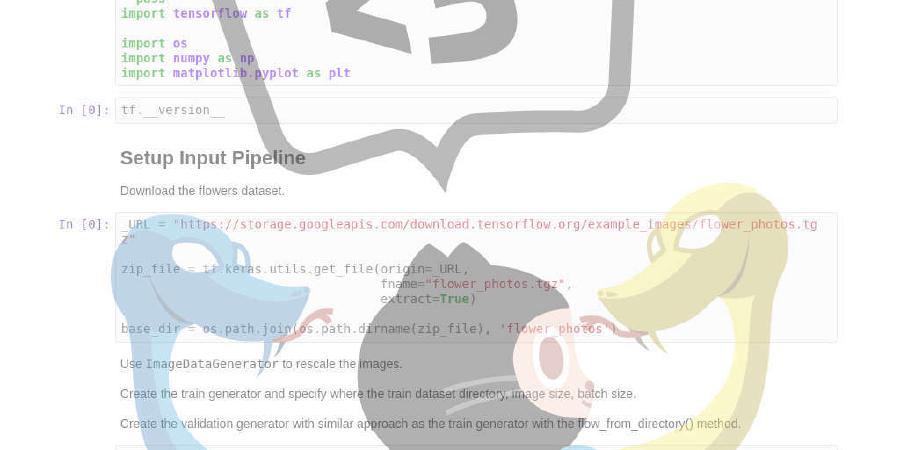gomatcha/matcha

Build native mobile apps in Go.
| repo name | gomatcha/matcha |
| repo link | https://github.com/gomatcha/matcha |
| homepage | https://gomatcha.io/ |
| language | Go |
| size (curr.) | 8025 kB |
| stars (curr.) | 3450 |
| created | 2017-08-01 |
| license | Apache License 2.0 |
Matcha - iOS and Android apps in Go
Matcha is in early development! There are many rough edges and APIs may still change. Please file issues for any bugs you find.
What is Matcha?
Matcha is a package for building iOS and Android applications and frameworks in Go. Matcha provides a UI component library similar to ReactNative and exposes bindings to Objective-C and Java code through reflection. The library also provides Go APIs for common app tasks.
Examples
Installation - macOS
Matcha requires the following components to be installed.
- Go 1.8+
- Xcode 8.3+
- Android Studio 2.3+ (with SDK 26, NDK and Android Support)
Start by installing Xcode and Android Studio. Instructions can be found at https://developer.apple.com/download/ and https://developer.android.com/studio/install.html.
You may need to run the following before starting Android Studio to allow it to read your GOPATH (https://stackoverflow.com/a/14285335). This also must be done on reboot.
launchctl setenv GOPATH $GOPATH
Open Android Studio’s SDK Manager and under the SDK Platforms tab, install the Android 8 Platform (API 26). And in the SDK Tools tab, install NDK and the Android Support Repository.
Configure the ANDROID_HOME enviromental variable to point to the Android SDK by
adding the following to your ~/.bash_profile. The Android SDK is
often located at ~/Library/Android/sdk depending on your install.
export ANDROID_HOME=<SDK location>
Fetch the project and install the matcha command.
go get gomatcha.io/matcha/...
Next we build the Go standard library for iOS and Android with the following command.
The output is installed at $GOPATH/pkg/matcha. If your
path doesn’t contain $GOPATH/bin, you may need to replace these calls with
$GOPATH/bin/matcha.
matcha init
Now build the example project. The output is installed at $GOPATH/src/gomatcha.io/matcha/ios/MatchaBridge/MatchaBridge/MatchaBridge.a and $GOPATH/src/gomatcha.io/matcha/android/matchabridge.aar.
matcha build gomatcha.io/matcha/examples
We can now open the sample iOS project.
open $GOPATH/src/gomatcha.io/matcha/examples/ios-app/SampleApp.xcworkspace
Set the Development Team in Xcode under General > Signing and select SampleApp in
the target dropdown in the upper right. Then run the App!
For Android, simply open the sample Android Studio project and hit run!
open -a /Applications/Android\ Studio.app $GOPATH/src/gomatcha.io/matcha/examples/android-app/SampleApp
Installation - Linux
Matcha requires the following components to be installed. iOS builds are not supported on Linux.
- Go 1.8+
- Android Studio 2.3+ (with SDK 26, NDK and Android Support Library)
Start by installing Android Studio. Instructions can be found at https://developer.android.com/studio/install.html.
Open Android Studio’s SDK Manager and under the SDK Platforms tab, install the Android 8 Platform (API 26). And in the SDK Tools tab, install NDK and the Android Support Repository.
Configure the ANDROID_HOME enviromental variable to point to the Android SDK by adding the following to your ~/.bash_profile. The Android SDK is often located at ~/Android/Sdk depending on your install.
export ANDROID_HOME=<SDK location>
Additionally add the following to your ~/.bash_profile to modify your PATH to
include the Java compiler if it does not already. javac can often be found at
/usr/local/android-studio/jre/bin.
export PATH=${PATH}:<Java Compiler location>
Fetch the project and install the matcha command.
go get gomatcha.io/matcha/...
Next we build the Go standard library for Android with the following command.
The output is installed at $GOPATH/pkg/matcha. If your
path doesn’t contain $GOPATH/bin, you may need to replace these calls with
$GOPATH/bin/matcha.
matcha init
Now build the example project. The output is installed at $GOPATH/src/gomatcha.io/matcha/android/matchabridge.aar.
matcha build gomatcha.io/matcha/examples
Now open the sample Android Studio project and hit run!
<Android Studio location>/bin/studio.sh $GOPATH/src/gomatcha.io/matcha/examples/android-app/SampleApp
Installation - Windows
Matcha requires the following components to be installed. iOS builds are not supported on Windows.
- Go 1.8+
- Android Studio 2.3+ (with SDK 26, NDK and Android Support Library)
Start by installing Android Studio. Instructions can be found at https://developer.android.com/studio/install.html.
Open Android Studio’s SDK Manager and under the SDK Platforms tab, install the Android 8 Platform (API 26). And in the SDK Tools tab, install NDK and the Android Support Repository.
Configure the ANDROID_HOME enviromental variable to point to the Android SDK.
The Android SDK is often located at %USERPROFILE%\AppData\Local\Android\Sdk
depending on your install.
setx ANDROID_HOME <SDK location>
Modify your PATH to include the Java compiler if it does not already. javac can often be found at C:\Program Files\Android\Android Studio\jre\bin.
setx PATH %PATH%;<Java Compiler location>
Fetch the project and install the matcha command.
go get gomatcha.io/matcha/...
Next we build the Go standard library for Android with the following command.
The output is installed at $GOPATH/pkg/matcha. If your path doesn’t contain
$GOPATH/bin, you may need to replace these calls with $GOPATH/bin/matcha.
matcha init
Now build the example project. The output is installed at $GOPATH/src/gomatcha.io/matcha/android/matchabridge.aar.
matcha build gomatcha.io/matcha/examples
Now open the sample Android Studio project and hit run!








